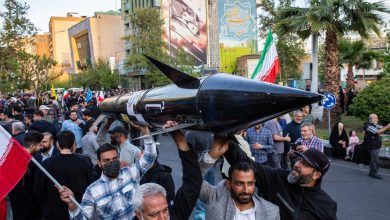
Main Target of Russian Mercenaries in Africa Is Civilians, Report Says
As Russian mercenaries from the private military group Wagner have been operating in Ukraine, their counterparts in Africa have received little scrutiny and have made civilian populations their primary targets, according to a newly released report on their activities in two of the continent’s most fragile countries.
In the Central African Republic, Wagner operatives have targeted civilians in more than half of all their operations since 2018, according to the Armed Conflict Location & Event Data Project, or ACLED, a crisis monitoring organization.
And in Mali, where Wagner mercenaries have been operating alongside the country’s armed forces since last year, ACLED reported they have targeted civilians in more than 70 percent of their activities, leading to a spike in civilian deaths that analysts say could fuel the ranks of Islamist insurgents.
ACLED said it established a data set of political violence in the two African countries based on eyewitness accounts, and reports from human rights groups, news organizations and national authorities.
In the Central African Republic, for instance, it recorded 180 attacks on civilians involving Wagner mercenaries since late 2020, accounting for 52 percent of the group’s operations in the country.
The Wagner Group, a network that combines military force with commercial and strategic interests, has been active in Mali, Central African Republic, Mozambique and Libya, allying with leaders and militia commanders who can pay for their services. The Kremlin denies any link to Wagner, but American and European officials say it is an unofficial tool of Russian power.
In Mali and the Central African Republic, the levels of violence committed by Russian mercenaries now exceed civilian targeting by state forces, rebel groups or Islamist insurgents, ACLED said.
“Put it simply, Wagner has been bad news for civilians,” said Héni Nsaibia, a researcher with ACLED focusing on Mali, and one of the authors of the new report on the group’s activities in the two countries. “They have played a central role in this escalation and increase of fatalities.”
The new data complement a growing body of evidence gathered by the United Nations, research institutes and news organizations documenting widespread looting, torture and indiscriminate killings in Africa by the group.
Hundreds of Wagner fighters have been fighting in Ukraine, and earlier this month Ukraine claimed to have to hit a base occupied by the shadowy group.
In the Central African Republic, Wagner fighters have been the main source of violence since late 2020, according to ACLED, even as the military has regained control of most territories that had been in the hands of rebel groups.
In Mali, where a military junta has been fighting insurgents affiliated with Al Qaeda and the Islamic State, Wagner mercenaries have been involved in the deaths of more than 500 civilians this year, driving casualties that in the first six months of 2022 have already outnumbered last year’s civilian deaths, according to ACLED.
In March, Malian soldiers and Russian operatives looted houses and executed hundreds of men in the village of Moura, before forcing locals to burn bodies in mass graves, according to a New York Times investigation.
Smaller-scale versions of the Moura massacre have occurred in other areas of central and western Mali. Also in March, “white-skinned soldiers” rounded up all adult men in a locality near the border with Mauritania, according to a confidential U.N. report seen by The Times. Malian armed forces later joined them, and the bodies of 33 men who had been arrested were found burned, the report said.
Now Wagner fighters are also targeting civilians in operations carried out without the Malian military, according to ACLED, reproducing a pattern seen in the Central African Republic.
The Malian authorities have repeatedly dismissed allegations of human rights abuses as part of a disinformation campaign and have denied the presence of Wagner in the country, even as Russia’s foreign minister Sergei Lavrov confirmed it earlier this year.
Mali’s close cooperation with Russia has jeopardized the presence of Western troops, with France ending a nine-year military operation in the country earlier this month.
A few days earlier, Germany had announced that it was suspending most of its military participation to the United Nations’ peacekeeping operation in Mali.
Still, the German foreign minister Annalena Baerbock told reporters in Morocco last week, “We must not abandon Mali and above all we must not abandon it to Russia.”



